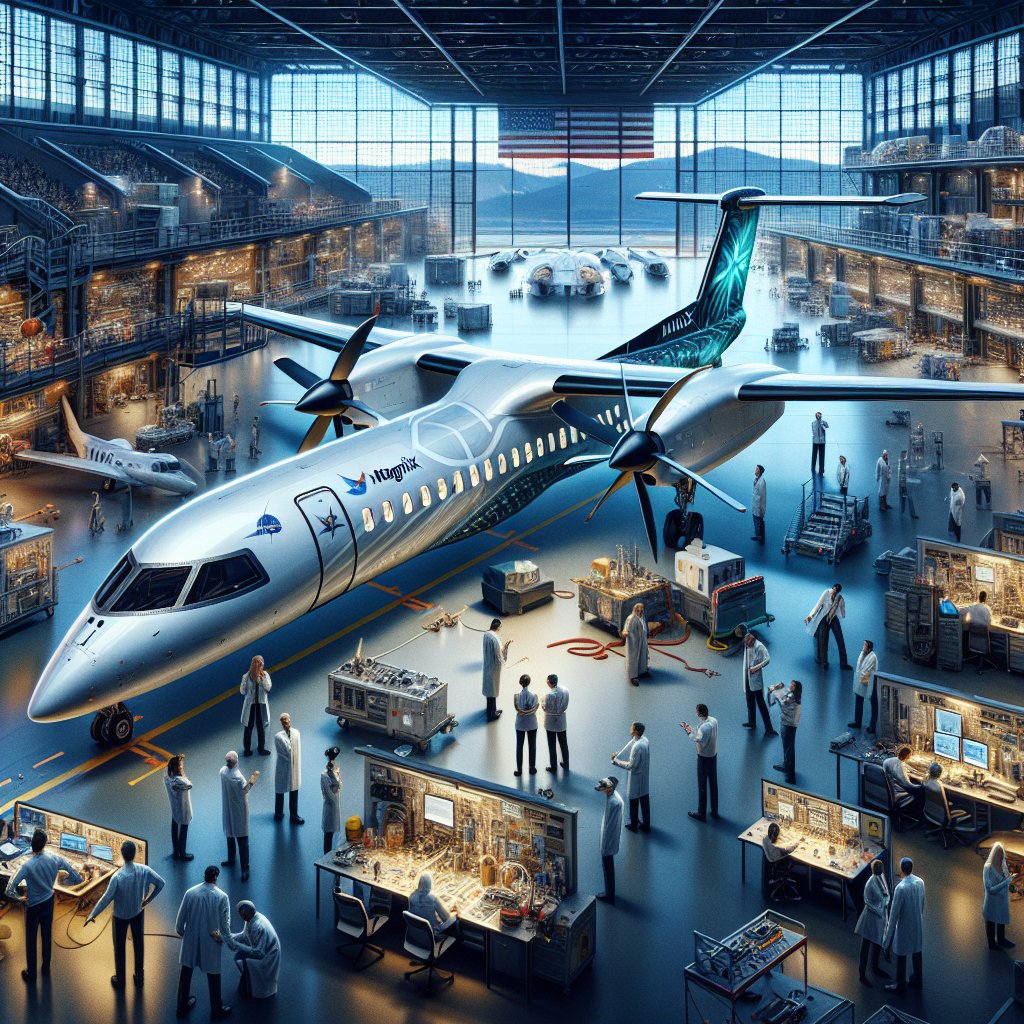Image created by AI
Groundbreaking Hybrid Electric Aircraft Takes Center Stage for Sustainable Aviation's Future
In a significant step toward sustainable air travel, magniX, in partnership with NASA, showcased their Dash 7 hybrid electric aircraft at King County International Airport. The highly anticipated reveal took place in Seattle, Washington, setting a milestone in the journey towards greener skies.
This aviation feat is part of the NASA's Electrified Powertrain Flight Demonstration (EPFD) project, which aims to pave the way for a new era of commercial aircraft with significantly reduced emissions. By the mid-2030s, the fruits of this research could see widespread adoption in the commercial fleet, marking a radical shift in how we approach air travel's environmental impact.
The Dash 7, sporting its new livery as a testament to its impending transformation, will undergo extensive modifications to accommodate a hybrid electric system. magniX's team is tasked with retrofitting the aircraft to enable ground and flight tests that will provide valuable data for NASA's aviation innovators. These trials are critical in identifying the challenges of certifying novel propulsion technologies and developing comprehensive standards and regulations for upcoming electrified aircraft.
Robert A. Pearce, the associate administrator for NASA’s Aeronautics Research Mission Directorate, emphasized the agency's commitment to pioneering aviation research with a forward-looking approach. The collaboration with magniX represents a concerted effort to confront the aviation challenges of the future and steer the community towards a sustainable paradigm.
Following the aircraft's unveiling, magniX will advance the conversion process, integrating the hybrid electric propulsion system into the Dash 7. The aircraft is scheduled to take to the skies for testing in 2026. Data collected from these experimental flights will be a cornerstone to ensuring that electric aviation plays a critical role in the evolution of commercial flight.
This development carries substantial significance as the world grapples with growing environmental concerns. The aviation industry has been under increasing pressure to find sustainable solutions to its carbon footprint. Innovations like the Dash 7 represent a blend of technological advancement and environmental stewardship, crucial for achieving net-zero emissions targets.
The anticipation for the Dash 7’s test flights in 2026 is already building momentum within the scientific community and commercial sectors, as many are eager to witness how hybrid-electric technology can reshape our conception of flight and our impact on the planet.










